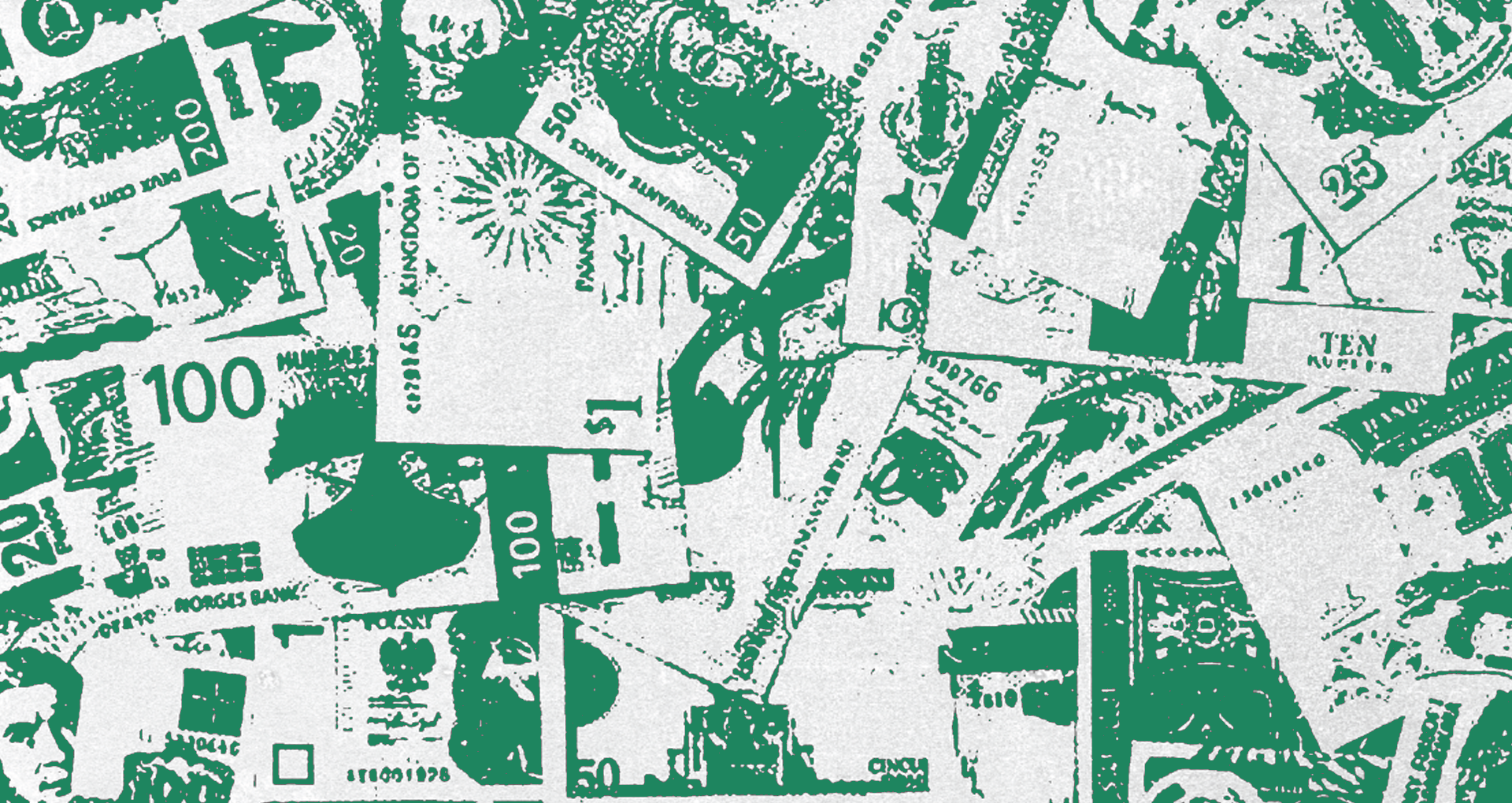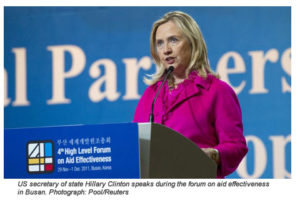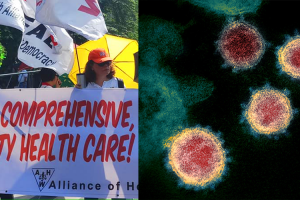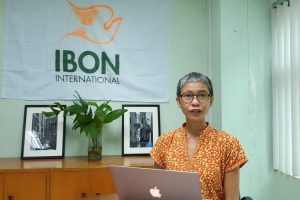The following article comprises of two inputs of IBON International Executive Director, Jennifer del Rosario-Malonzo, at a global meeting for the International Development Co-operation Workstream of the Civil Society Financing for Development Mechanism, in the lead-up to the first session of the Preparatory Committee for the Fourth International Conference on Financing for Development (FfD4). The global civil society meeting was held on 18 to 20 July 2024 in Addis Ababa, Ethiopia, and was co-organised by Eurodad and Reality of Aid-Africa. The inputs in that meeting have been merged and edited for this release.
Official development assistance (ODA) is tied to colonial legacies – it emerged during the late colonial period of the 1940s. It was borne out of the economic and political realities of that period — the ruins of World War II, the onset of the Cold War, and the legacy of colonialism in the newly independent countries of the “Third World”. On the one hand, even at its origins, aid has been used as a foreign policy tool.
But from a Southern point of view, ODA is also premised on the reality of an existing gap among Northern and Southern countries within the global economic and political system. This gap is not only due to inherent differences in domestic development policies and processes, but mainly due to the history of colonialism and neo-colonialism – which has placed the Global South at a disadvantaged position.
Failed commitments, historical obligations
Global North countries not only have the capacity to provide financing and technical assistance, but also the political obligation to assist in closing the global disparities, oriented towards the global South’s eventual reclaiming of their self-reliant development. This obligation is historical debt, which requires redistributive justice. ODA is not charity but responsibility, an obligation for reparations for decades of continuing extraction, exploitation and plunder of the Global South by rich countries, and needs to be recognised as such.
Commitments, from the 0.7% GNI quantity[1] to the effectiveness principles (of democratic ownership, focus on results, transparency and accountability, inclusive partnerships) to ensure quality, have not been met. In many ways, they have regressed.
The new narrative, of moving ODA away from notions of charity, towards justice and reparations, demands that unmet commitments be considered as ‘aid debt’. Unmet ODA debt owed to the Global South is estimated to be almost USD 6 trillion[2] – resources that could provide fiscal space necessary to finance poverty eradication and address inequalities.
The question of power: Towards a Convention on development co-operation
The context today is more complex and challenging – amid the multiple socio-economic crises; the ecological and climate emergency; the geopolitical conflicts, wars, occupation and militarism we face. Power asymmetries remain, between a small number of developed countries of the North and the much bigger number of underdeveloped or developing countries of the South. The same powerful “donor” countries lead the various multilateral bodies that continue to dominate the development cooperation system. The global “aid system” is growing more and more unmanageably complex – even chaotic – in terms of the proliferation of donors and instruments.
Aid fragmentation, and policy incoherence, are among the results. As a BetterAid discussion note stated in 2011, “The current development architecture…is an amalgamation of different institutions created at different times with overlapping mandates and tools, unclear accountability mechanisms, limited participation and lack of legitimacy.” Not much has changed.
Power asymmetries continue to hinder or misshape international consensus not just on issues of aid but also on trade, debt, financing, and investment regimes. Developing countries have to exert tremendous efforts to assert their sovereignty in charting their own development path and claiming their own policy space – but often they are unsuccessful in doing so.
A new narrative towards the 2025 Fourth International Conference on Financing for Development (FfD4), as a policy space for major reforms, requires accounting for these realities. So far, civil society discourse has led to shifting the stress away from charity towards justice and solidarity; truly shifting the governance of development cooperation to the UN system; and calling for a convention on development cooperation.
A convention on development cooperation, under UN auspices, could usher: 1) a democratic, rights-based, equitable and just governance of development cooperation consistent with the Right to Development; 2) hold Northern states accountable for their unfulfilled historical commitments on quantity and quality, including recognition of the trillions of unmet ODA commitments as ODA debt. This is far from new. Civil society organisations then under the banner of BetterAid have called for this convention in 2010 during the run-up to the 2011 Busan forum, with discussions on governance principles and pillars for a just development cooperation.[3]
Some key elements in pursuing the Convention could include:
- Principles – The duty of justice, solidarity and respect, and the need for a coherent international system; adopting universally-accepted norms and conventions as the guiding principles of development cooperation. Many of these principles are already embodied in a number of international agreements, including various UN human rights conventions, declarations, and charters forged and ratified in the past decades. Beyond these are the development effectiveness and South-South cooperation principles. For monitoring and accountability, these principles must be accompanied by measurable, time-bound, and enforceable indicators.
- The necessity of UN auspices – UN auspices allow a broad and long-standing global mandate from the vast majority of the world’s nation-states; the UN has several bodies and processes active in the field of development. The UN Development Cooperation Forum, which has been discussing policy reforms and coherence in the international architecture, could play an important role in building consensus on issues of development cooperation. The UN system must play a crucial role in helping ensure that the new system pursues a rights-based approach to development and enjoys legitimacy. More importantly, in the UN, developing countries could have the space to assert and claim ownership of their development efforts, and promote an inclusive and democratic development cooperation architecture where donor countries fully adhere to the principle of democratic ownership. Relationships must be rebalanced to favor developing countries rather than donors.
- Democratic participation – flowing from the principle of country democratic ownership, a new architecture must give primacy to national development strategies, and ensure needs-based (instead of donor-driven) allocations and alignment of development cooperation flows. These development strategies, shaped by democratic and inclusive processes, should serve as the framework for policy coherence at the national level, and for identifying finance gaps that ODA flows can fill.
The urgent need to strengthen the global governance of international development cooperation is oriented to democratise decision-making, policy setting and monitoring. The assistive role of ODA in correcting global disparities also requires coherence around other systemic shifts—in economic sovereignty, trade, investment, and other elements in the international financial architecture. Shifts in the international financial architecture should serve structural transformation: a break from colonial patterns of investment; rebuilding Southern domestic economies and production for domestic needs; ecological transitions that allow options for the South to not repeat the path of Western industrialisation; and peoples’ sovereignty to determine their development paths. #
[1] “In recognition of the special importance of the role which can be fulfilled only by official development assistance, a major part of financial resource transfers to the developing countries should be provided in the form of official development assistance. Each economically advanced country will progressively increase its official development assistance to the developing countries and will exert its best efforts to reach a minimum net amount of 0.7 per cent of its gross national product at market prices by the middle of the Decade.” – International Development Strategy for the Second United Nations Development Decade, UN General Assembly Resolution 2626 (XXV), October 24, 1970, para. 43
[2] 50 Years of Broken Promise: the 5.7 trillion debt owed to the poorest people
[3] IBON International has also published a 2011 primer that called for a convention as part of building a new global development cooperation architecture.




